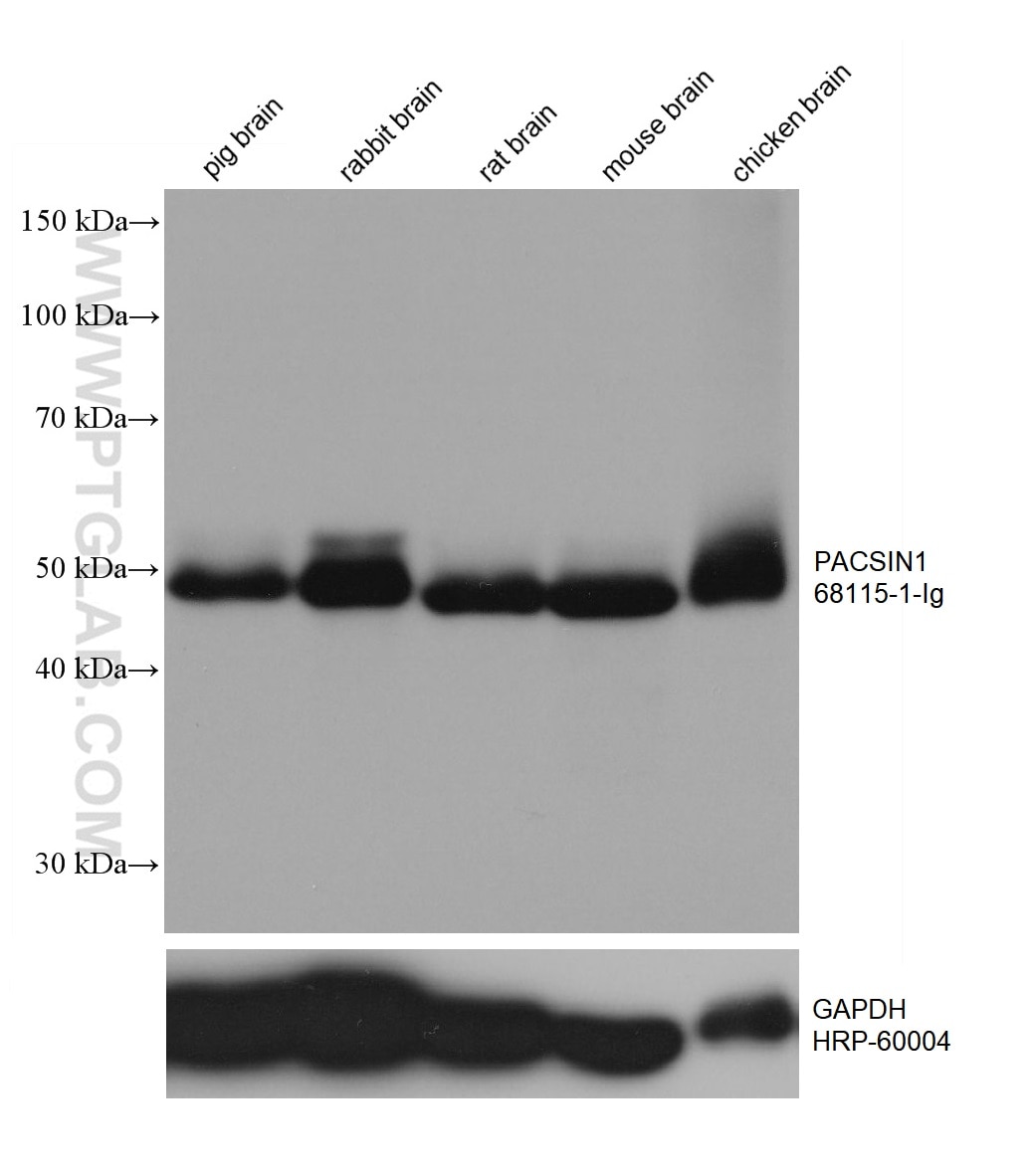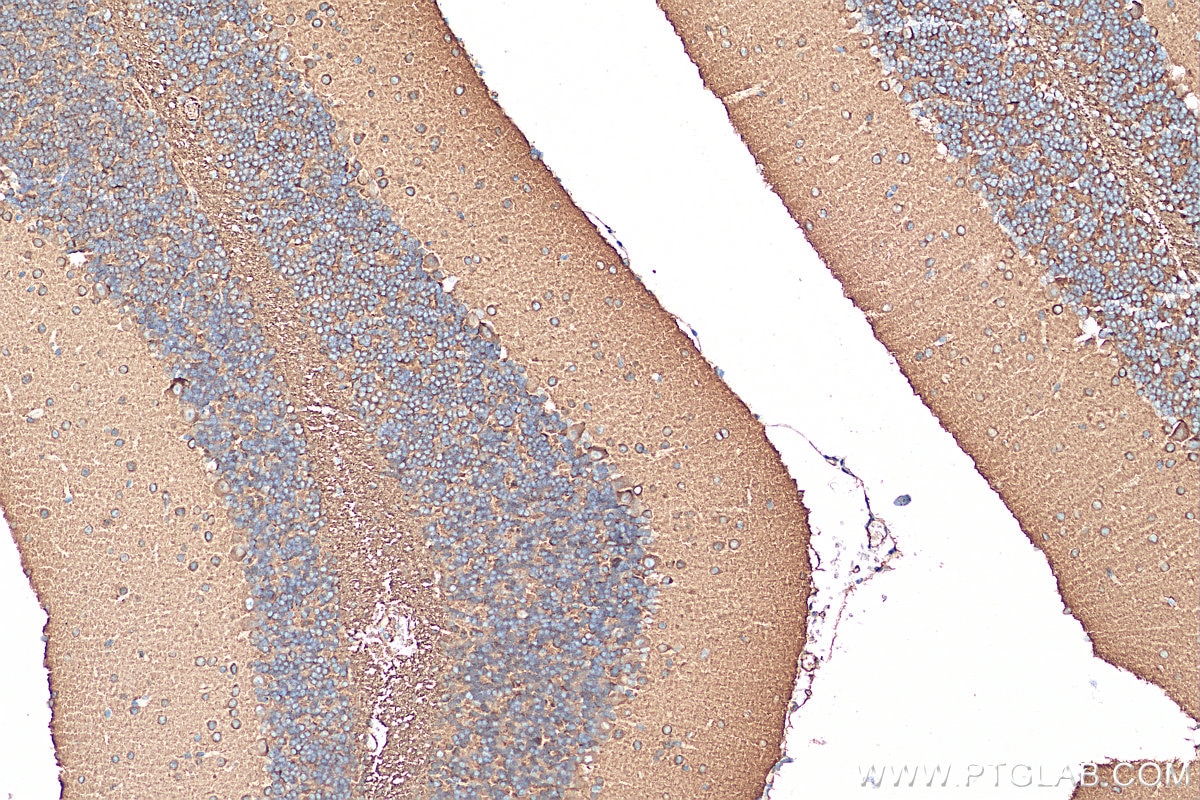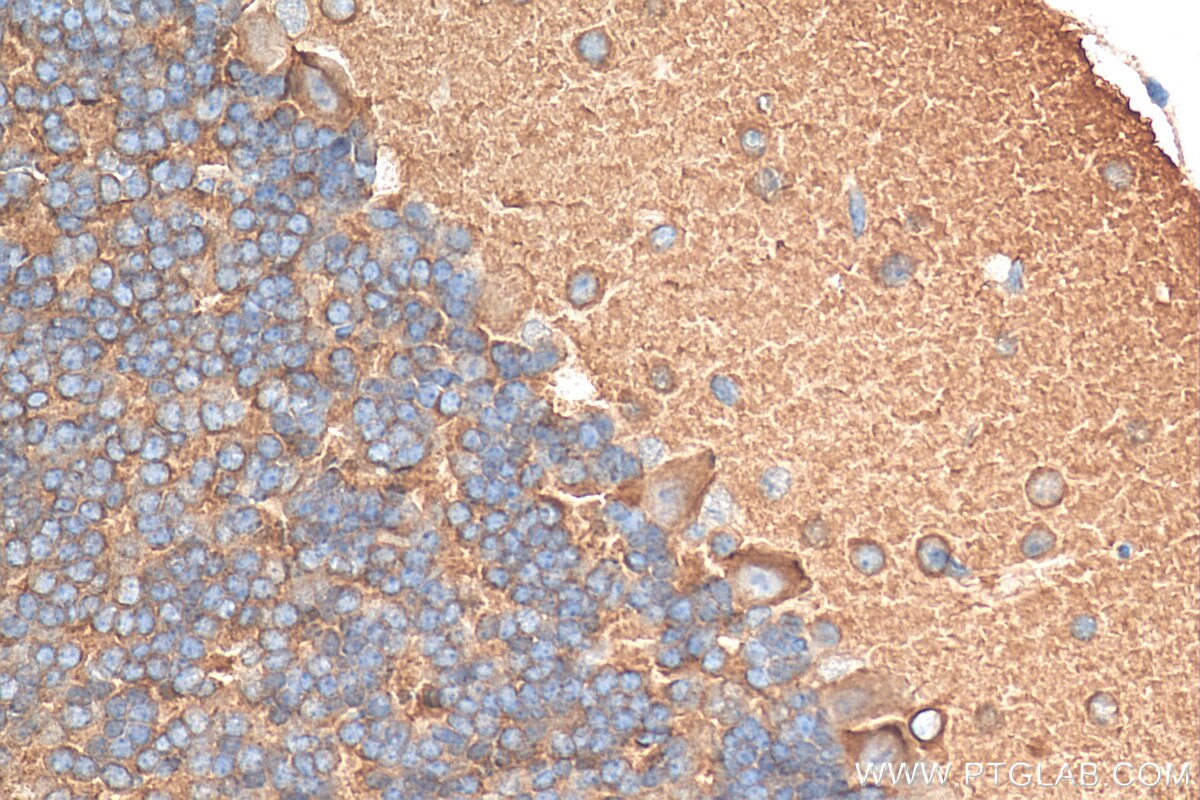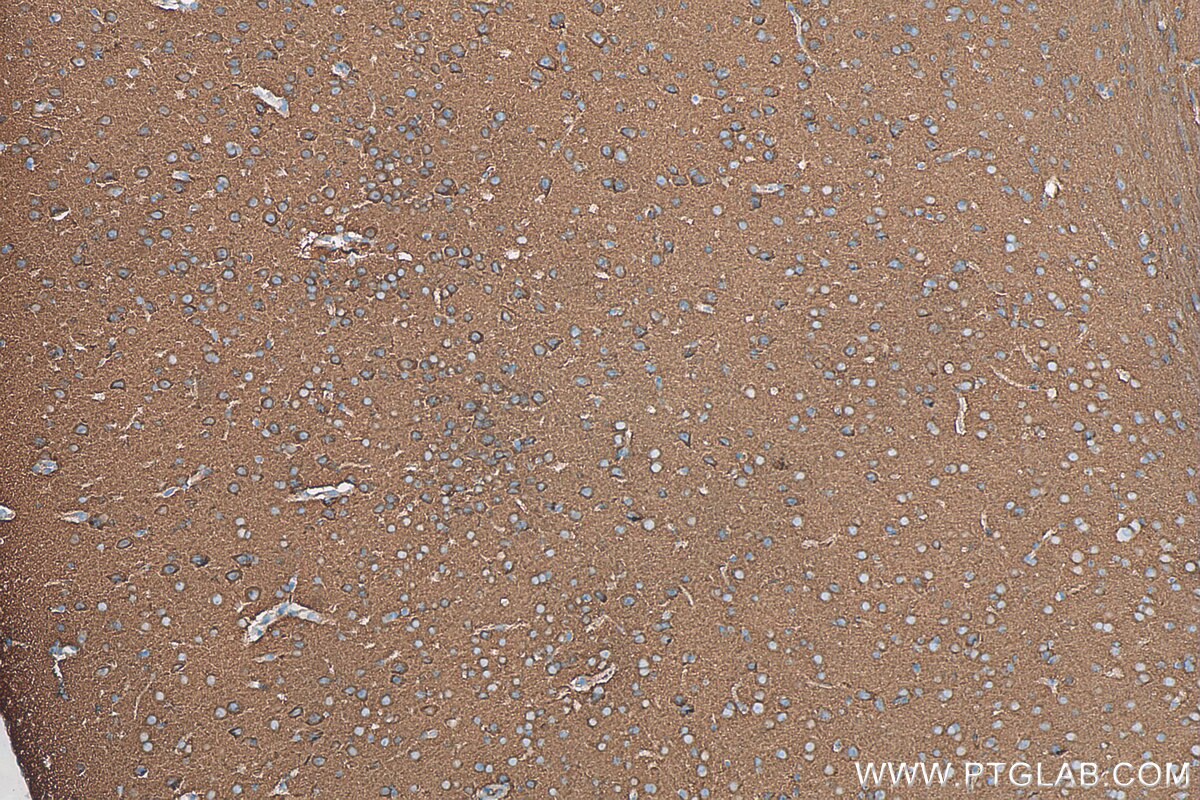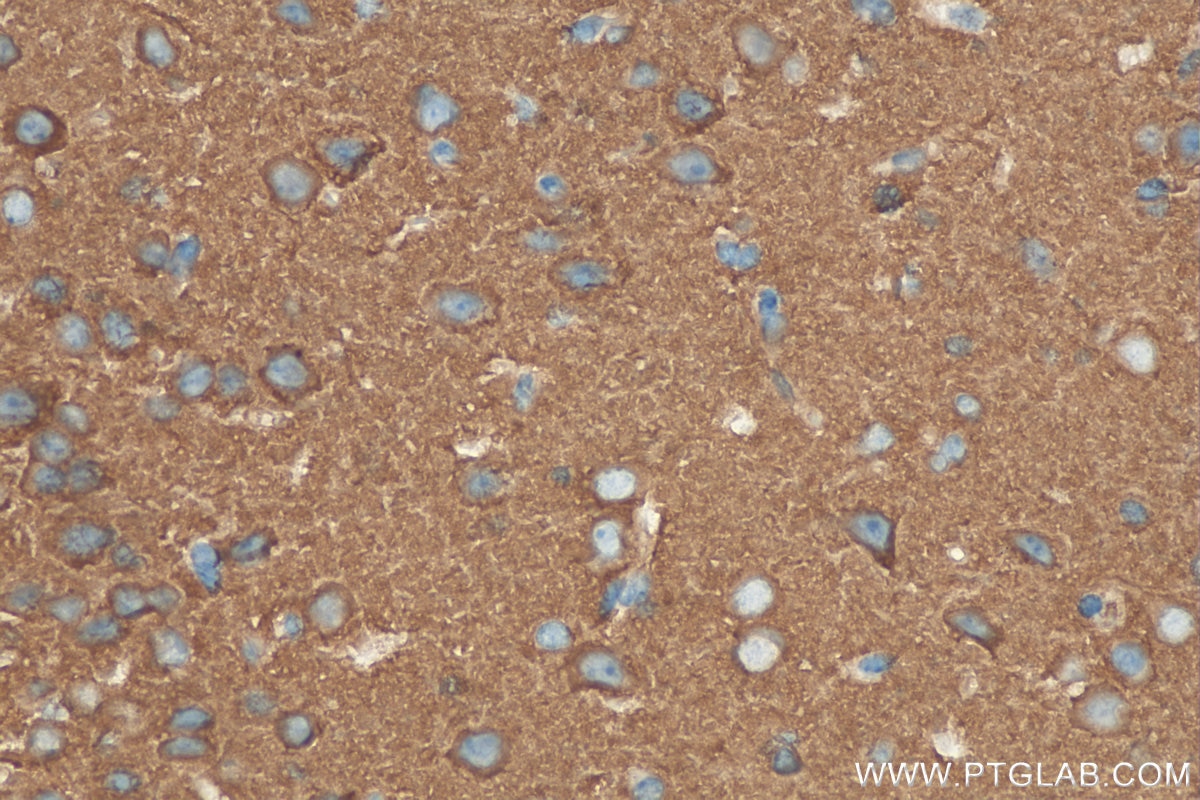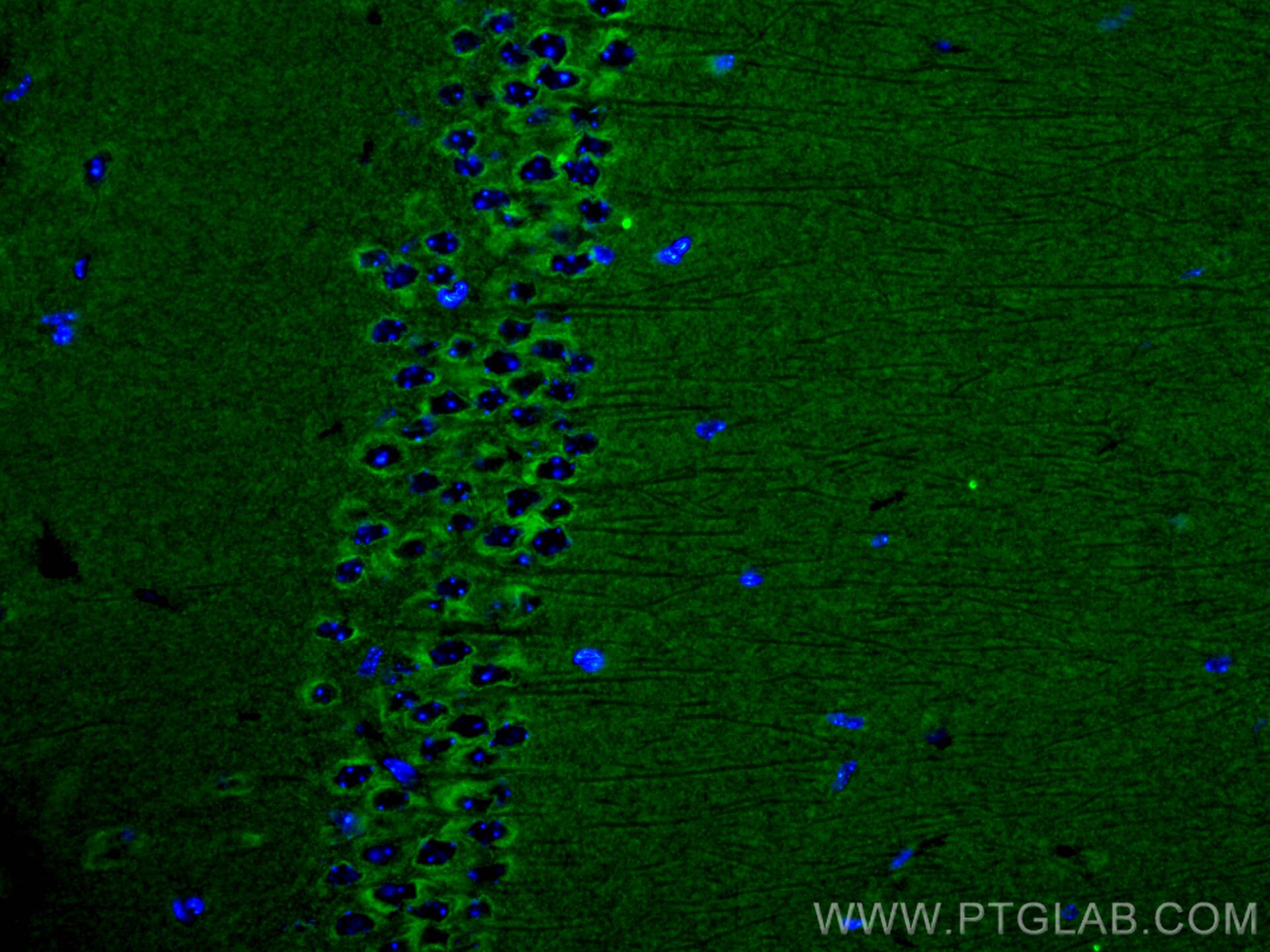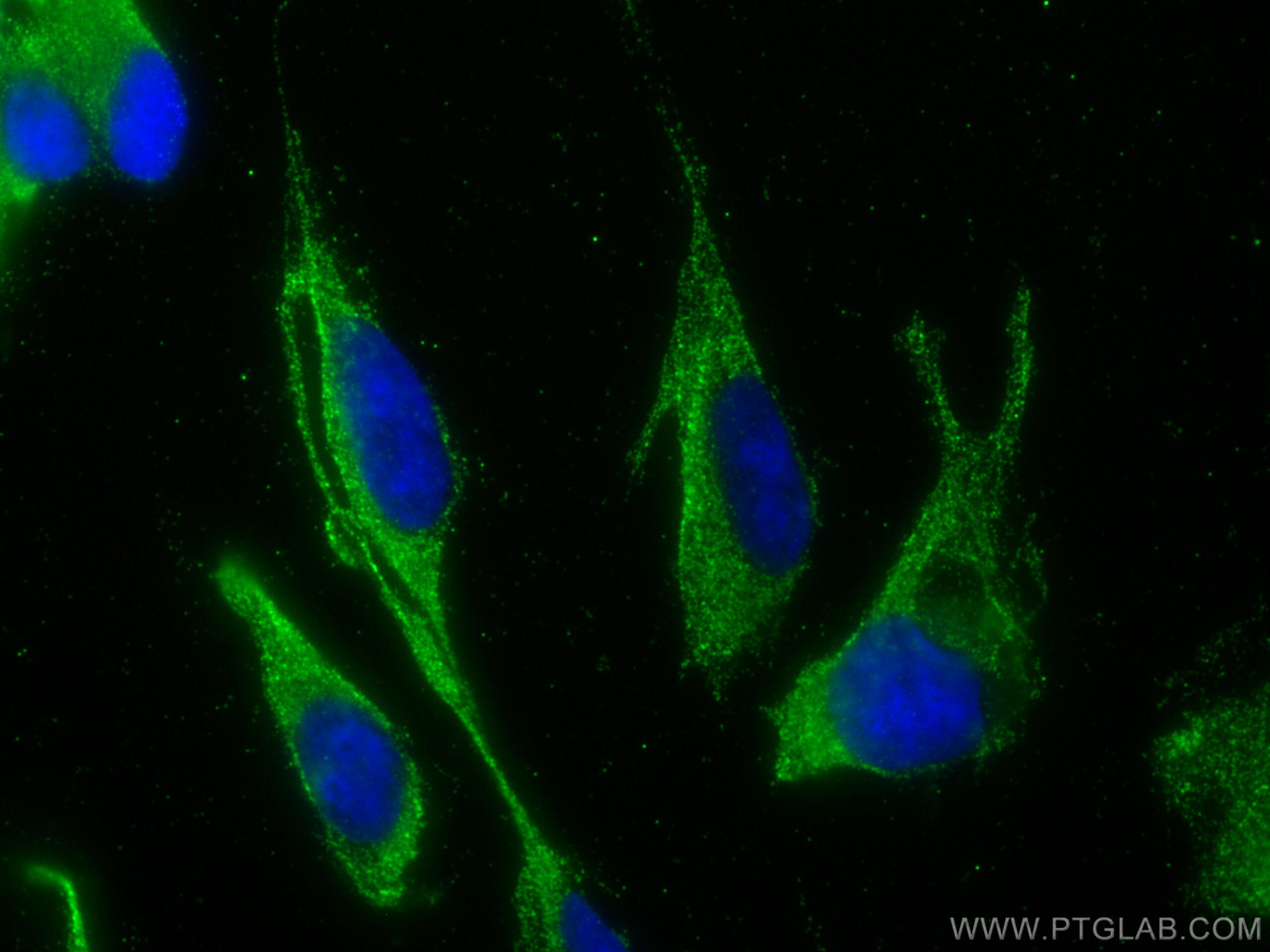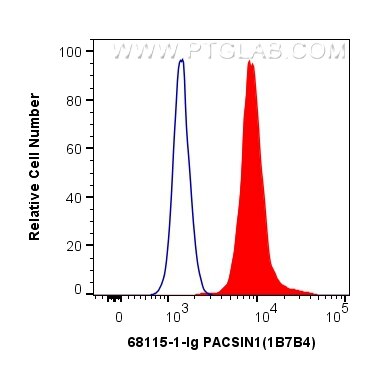Product Information
68115-1-PBS targets PACSIN1 in WB, IHC, IF/ICC, IF-P, FC (Intra), Indirect ELISA applications and shows reactivity with human, mouse, rat, pig, rabbit, chicken samples.
| Tested Reactivity | human, mouse, rat, pig, rabbit, chicken |
| Host / Isotype | Mouse / IgG1 |
| Class | Monoclonal |
| Type | Antibody |
| Immunogen | PACSIN1 fusion protein Ag4102 Predict reactive species |
| Full Name | protein kinase C and casein kinase substrate in neurons 1 |
| Calculated Molecular Weight | 444 aa, 51 kDa |
| Observed Molecular Weight | 48-51 kDa |
| GenBank Accession Number | BC040228 |
| Gene Symbol | PACSIN1 |
| Gene ID (NCBI) | 29993 |
| Conjugate | Unconjugated |
| Form | Liquid |
| Purification Method | Protein G purification |
| UNIPROT ID | Q9BY11 |
| Storage Buffer | PBS only , pH 7.3 |
| Storage Conditions | Store at -80°C. |
Background Information
PACSIN1 (also known as syndapin-1) is a member of the protein kinase C and casein kinase substrate in neurons (PACSIN) family. In mammals, the PACSIN family is comprised of three members, PACSIN1, PACSIN2, and PACSIN3 (PMID: 34990060). PACSIN1 is expressed mainly in neurons, whereas PACSIN2 is ubiquitously expressed in all tissues, and PACSIN3 is expressed mainly in skeletal muscle and the heart (PMID: 23668323). All of these three members contain an N-terminal F-BAR domain and a C-terminal SH3 domain. PACSIN1 plays a role in endocytosis and endosomal recycling. Meanwhile, it has a role in actin remodeling and microtubule nucleation and also plays a particular role in membrane shaping and reconstruction (PMID: 23035120; 34422904). PACSIN1 is involved in neuromorphogenesis and the regulation of the nervous system, and the inappropriate expression of PACSIN1 has been associated with some neurological diseases, including schizophrenia, Alzheimer's disease, and Huntington's disease (PMID: 34990060).
